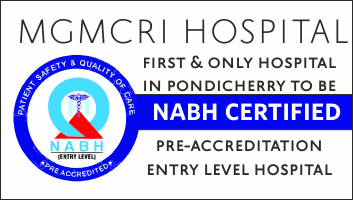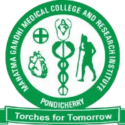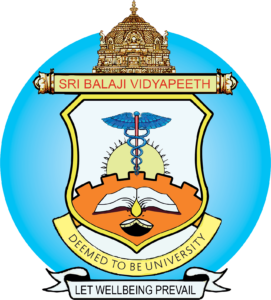Transgender Care
Patient care services offered

















Transgender Care
The Gender Care initiative at MGMCRI was developed to respond to the transgender community needs, in recognition that medical teaching institutions can play a key role in adapting standards of transgender care to the local context, and bringing the gamut of care (psychiatry, endocrinology, dermatology, surgery) under one roof, comprehensive care to transgender community for safe gender transitioning process through an organized team approach.
The Gender Care Committee of MGMCRI, Pondicherry, established in October 2016, facilitates holistic transgender healthcare viz. Gender Reassignment Surgeries and other transition therapies. It provides culturally appropriate, safe, economical, non-judgmental, and medico-legally sound gender transition assistance. After an initial experience with threats of litigation from transphobic family members of a (legal age) client, the Committee rolled out a protocol accounting legal aspects of gender transitioning. View the list of GENDER CARE COMMITTEE MEMBERS
The hospital has registered over 500 patients from 16 states all over the country and conducted over 300 surgeries, through a regular Transgender Clinic. Psychiatrists diagnose, certify Gender Dysphoria, evaluate and assess psychological preparedness. Dermatologist screens for local or systemic infections. Surgical and Anesthesiology teams evaluate readiness for surgery. Clients are supported by a dedicated transgender activist in filing necessary documents such as proof of age and affidavit prior to surgery. The clients are issued a medical certificate during discharge that enables them to access other government documents.
This protocol of MGMCRI Hospital is expected to be propagated and implemented nationally in all institutions rendering such care. These procedures involve cost to the client and institution, necessitating its inclusion in the insurance schemes.
Executive summary of work
The work described herein is the ‘Gender Care team’ of Mahatma Gandhi Medical College and Research Institute (MGMCRI) in Pondicherry, India. Reorganised in October 2016, our team is – to our knowledge – one of the few in the country to provide comprehensive care to trans women and trans men seeking gender transition procedures.
Opportunity: The representation of two Transgender members in the Gender Care Committee has had the unique opportunity to understand the personal and professional needs of this vulnerable population and possess the skills that are needed to establish systems integrating gender-related transition procedures into the Institution’s services.
Activities: ‘The transgender clinic’, that formerly provided HIV/AIDS services on an outpatient basis, has now been expanded with a ‘Gender Care Team’ incorporating mental health care professionals, surgeons, dermatologist, legal adviser, hospital administrator and social activists. After an initial experience with threats of litigation from transphobic family members of a (legal age) client, We took the initiative to develop a protocol and orient the hospital administrators and health care providers on legal aspects of gender transitioning. The team is developing benchmarks to include transgender health care as a part of ‘Safe Patient Care Practices’ in India.
Yardsticks of Success
One of the aim of the Gender Care Team is to facilitate gender reassignment surgeries and other gender transition therapies, provide culturally appropriate, safe, economical, non-judgmental, and medico-legally sound gender transition services. One key metric of success for a protocolled approach to surgical transitioning of transgender patients is the integral involvement of community members. The presence of transgender staff members initially served as a motivation for communities to seek HIV/AIDS services at our institution without fear of stigma and discrimination. Over time, the expansion of our transgender clinic by providing general healthcare to trans* community, have built confidence in the community to seek out the gender transitioning support services that are now available. The protocol for gender transition was discussed amongst the team members to re-organise the existing transgender patient care procedure.. The scheduled appointment time, planned perioperative period reduced the financial and mental burden on patients. None of the patient had any early postoperative complications related to surgery or anaesthesia. The medical documents made during gender transitioning process helped them to process the other legal documents of changed identity.
Patients first
Index cases identification, referral & community participation: A transgender activist in the team helped to educate the local transgender population on safe surgical practice for transition. Community members are supported in filing necessary documentation such as proof of age, consent, hospital waivers, certificate of transition by a dedicated transgender activist working through a non-governmental organisation. Issuance of a medical certificate enables clients access post-operative follow-up including recovery assessment and management.
Dissemination of information on safe gender transition practices: Offering these non-surgical transition procedures bring them in contact with the gender clinic to disseminate information on safe genital transition process. Outreach health camps are being organised to identify and manage urogenital complications, especially among transgender individuals who have been subjected to emasculation procedures by quacks in non-hospital settings. These activities have further helped built confidence of the community in our services.
Futuristic goals of ‘Gender care team’
The team members are currently working on making a dedicated policy and procedure for transgender employees’ workplace transition. The team also plans to work with national NGO towards policy and curriculum changes to make medical curricula LGBTQI-inclusive. Making Palliative care LGBTQI inclusive, Working with NHM to develop policy on intersex surgeries. Advocay to propogate the MGMCRI Transgender Protocol
Notable Consultants
FAQ
I am item content. Click edit button to change this text. Lorem ipsum dolor sit amet, consectetur adipiscing elit. Ut elit tellus, luctus nec ullamcorper mattis, pulvinar dapibus leo.
I am item content. Click edit button to change this text. Lorem ipsum dolor sit amet, consectetur adipiscing elit. Ut elit tellus, luctus nec ullamcorper mattis, pulvinar dapibus leo.
I am item content. Click edit button to change this text. Lorem ipsum dolor sit amet, consectetur adipiscing elit. Ut elit tellus, luctus nec ullamcorper mattis, pulvinar dapibus leo.
MGMCRI Hospital
Advanced, Caring, Assured

Team of Doctors giving you the best healthcare to Stay Healthy



